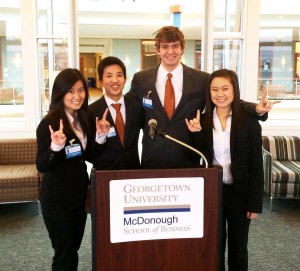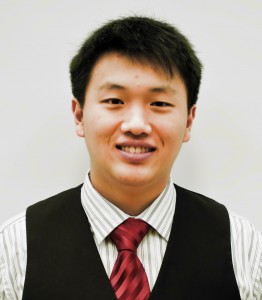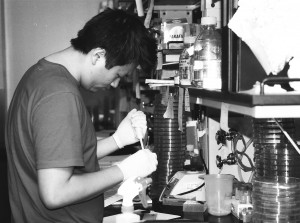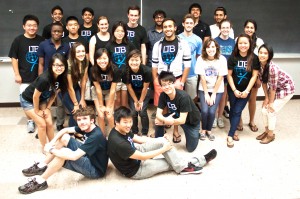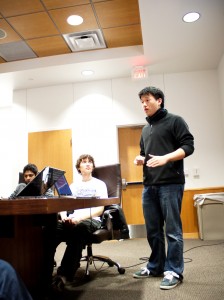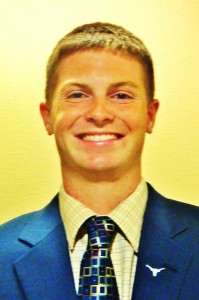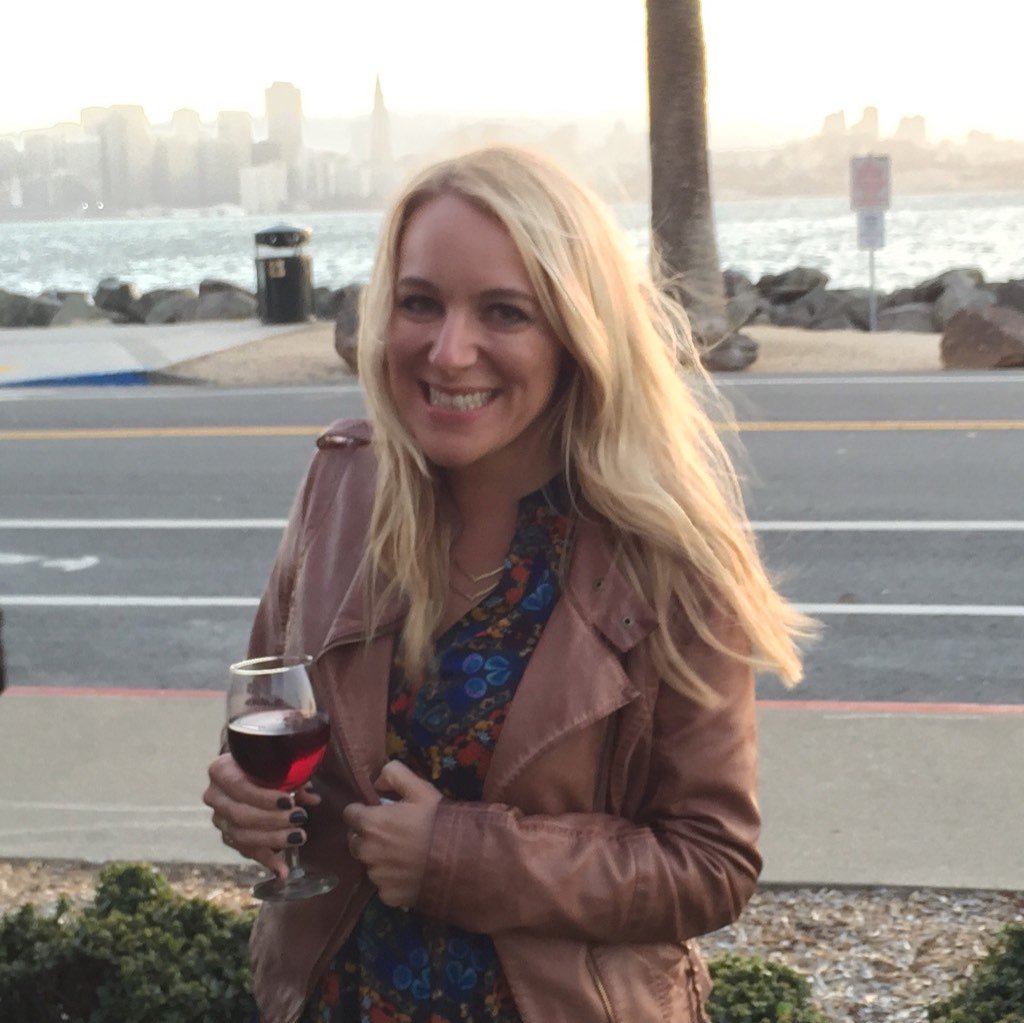 April Underwood, BHP ’01, is Director of Product for Twitter. She leads product strategy focused on harnessing the power of Twitter’s data through a diverse ecosystem of partners and developers. April previously led product management, product marketing and business development teams at Twitter, focused on advertising products and Twitter’s API. Before joining Twitter, April held product roles at Weatherbill (Climate Corp), Google and Travelocity, and was a software engineer at Travelocity and Intel.
April Underwood, BHP ’01, is Director of Product for Twitter. She leads product strategy focused on harnessing the power of Twitter’s data through a diverse ecosystem of partners and developers. April previously led product management, product marketing and business development teams at Twitter, focused on advertising products and Twitter’s API. Before joining Twitter, April held product roles at Weatherbill (Climate Corp), Google and Travelocity, and was a software engineer at Travelocity and Intel.
Tell me about your career path and how you ended up at Twitter.
After I left McCombs I moved to Oregon where I took a role as a software engineer at Intel, where I worked on internal software. I found I wanted to work more on a consumer-basing product, and I missed my family and friends in Texas, so in 2002 I took an opportunity with Travelocity in Dallas. I joined as an engineer, but my McCombs background made me well-suited for a variety of tasks aside from writing code. I was soon asked to be the point of contact on the technical side working with partners like Yahoo! and AOL. I transitioned into a product management role building out a platform to allow Travelocity to power travel experiences on more partner websites. I left in 2005 to get my MBA from Haas at University of California at Berkeley after which I went to work for Google. At Google, I worked on scaling how we brought new types of content to products like Google Maps and Product Search, and how to monetize those Google properties with advertising. After a few years of learning within Google, I was eager to take my experience to a startup, and I spent some time at a small startup. Unexpectedly, I got a chance to join Twitter (a product I already loved and a team I admired), and I took the leap. McCombs opened the door to the early roles in my career, which have consequently led to my current role at Twitter for the past 4 years.
When you were in school, Twitter didn’t even exist. Where did you think your career was going to go back then?
I graduated as the dot-com bubble was bursting in 2001 and it was a tough time in the job market. The first decision I made was that I wanted to go into an engineering role with the thought that I would go into a management or business role down the road. While I was in school, I had a part-time job working for a company that provided technical support for internet service providers, so I already had some experience in tech. I was pretty sure I would want to work in technology in some way, but the number of and types of opportunities has changed so much since that time. There are different types of products, technologies, and roles now than there were in 2001.
You have held various roles at Twitter. How did those transitions happen and do you have a favorite project you have worked on there?
I joined when Twitter was a much smaller company in 2010. It has been really special to be part of the growth of the company, and it’s given me the opportunity to develop products and teams from scratch. I really enjoy what I am working on right now, which is helping businesses understand how they can use Twitter data to make better decisions. I really enjoy the intersection of partnerships, product and technology — and building platforms. My experience at Twitter just keeps getting better and better as we grow our portfolio of products and more opportunities for leadership emerge. Perhaps even more importantly, I get the chance to work with smart and funny people who are not just co-workers but also friends. That’s a very high priority to me because we work hard and it makes busy or hard weeks less burdensome.
What are the main functions of the role you just moved into?
I run a team of product managers. We identify opportunities that exist, and focus a lot on defining the “why”, “for whom” and “what” of our products. We don’t do this alone – we partner closely with business teams, our engineering team which drives the “how” our products work, and spend time with customers and partners to inform our strategy and plans. We operate as a business within Twitter and have to make hard choices about which opportunities to go after since the possibilities are so unlimited.
What do you enjoy most about your job?
The thing I enjoy most is the scale and uniqueness of our opportunity. With a billion Tweets produced every 2 days, we and our partners have only scratched the surface of what’s possible. I enjoy working on Twitter data because you can think of Tweets as the pulse of humanity. It is amazing to think of what kinds of problems can be solved with our data – some have business impact and some make the world a better place.
How do you think your BHP and Management Information Systems (MIS) degrees have prepared you for your career?
MIS coursework was great preparation for what it is like to work on a team to build software. I learned how structure is required to build process and I learned the communication and interpersonal skills I needed to work well with other people. From the BHP side, I learned to not just focus on what you are building, but on why, who it is for, and ultimately what problems you are trying to solve That breadth of perspective made it possible for me as a 21-year-old new graduate to be able to join strategic conversations and ask the right questions of my peers and leaders in a work setting.
Do you have advice for women going into the technology industry?
For women going to work in any field where they are the minority, I would encourage them to reach out and connect with other women within their company, and that definitely holds true for the technology industry. We have two organizations at Twitter that help women connect with others within the company, and it’s a hugely valuable network (and also a lot of fun). You can start similar groups within your company where they don’t exist. Ask to have coffee with the senior women in your company. Usually they are happy to build those relationships.
What advice do you have for current students in the program?
Number one thing – take a shot at starting a company. I didn’t do it myself, but I think school is a great time to try. Alums, executives, and investors are more willing to help you out while you are a student than they may be after you graduate. For students not looking to make that kind of a leap, I would recommend taking on as many internships as possible. I had two internships and part-time jobs and I learned so much from those experiences. It is the best way to figure out what you like and don’t like.

